If you’re a commuter cruiser like us, it’s about time to figure out where you’ll leave the boat for hurricane season.
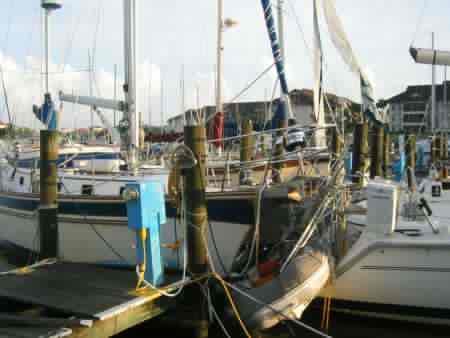
Insurance companies dictate the “rules” … i.e. the dreaded “box”. But reality creeps in and the “box” means commuting perhaps farther than ideal every year if you want to spend time in the Caribbean. Depending on your insurance requirements, boats in the Eastern Caribbean need to be either north of 32 degrees north (approximately Savannah, GA) or south of 12 degrees north (approximately Grenada).
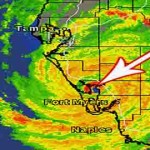
The past 4 years, we’ve broken the rules by keeping s/v Winterlude in Punta Gorda, FL — 26 degrees north — and this year on the hard in Marathon, FL — 24.7 degrees north. Not safe from hurricanes and every time a tropical wave develops, we watch intently to see whether it could be the storm that negatively impacts our cruising lives. If you decide to take this risk, be sure to study the hurricane history of the area you pick as well as your specific insurance – for example, do you not have ANY insurance, or is there a significantly higher deductible, or what would happen in the event of a named storm … NOT just a hurricane, BTW.
While we were in the Western Caribbean, we spent 5 hurricane seasons in much safer waters than Florida. The first two seasons we spent tucked up the Rio Dulce in Guatemala – technically still in most hurricane zones, but historically very little impact from most – except Hurricane Mitch perhaps. Returning to your boat in the Rio Dulce isn’t the easiest — you fly into Guatemala City where you can take a 5 hour bus ride or get van service to Fronteras and the Rio Dulce marinas.
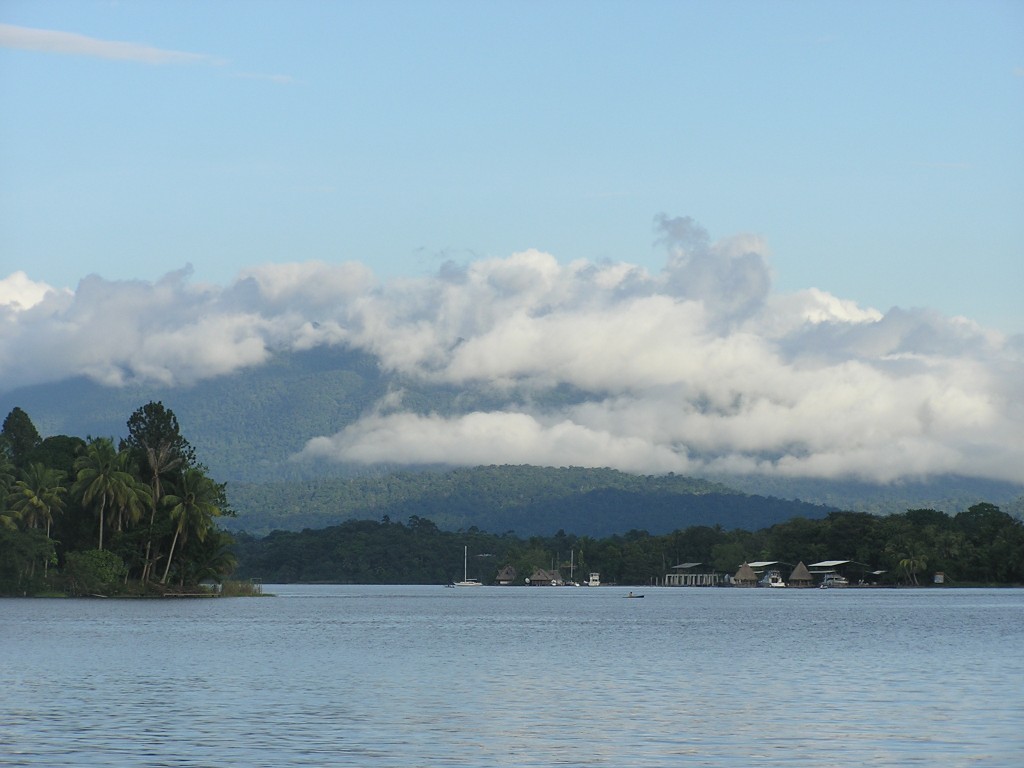
Marinas In The Rio Dulce, Guatemala
The next year, we left the boat in Bocas Del Toro, Panama … a good choice, although access was more difficult. Flying in to the international airport in Panama City, then transferring to Alburg Airport, the smaller airport, to catch a flight to Bocas Del Toro. Because these are smaller planes … think small planes unless things have changed … sometimes your luggage (i.e. boat parts) will need to be on a different plane, maybe even the next day. We never had trouble as long as we were flexible. Here’s a link for Bocas Marina, where we left the boat in Bocas Del Toro. There are more options these days, so ask other cruisers!
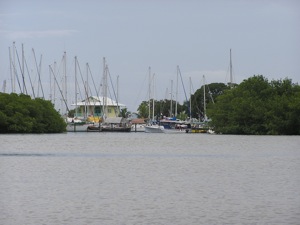
Bocas Marina, Bocas Del Toro, Panama
Our final two hurricane seasons we left the boat in Shelter Bay, Ft Sherman (Colon), Panama. This is a “trying to be first world” marina located on the former US Military Base by the Panama Canal. A good choice for us and safe. Getting to Shelter Bay requires flying into Panama City, then catching a bus or van service for Shelter Bay. Because Shelter Bay is on the “other” side of the Panama Canal, often access is closed while the big ships go through the canal. Sometimes the wait can be an hour or more. Just like for Bocas Del Toro, most commuter cruisers stay overnight in Panama City before journeying on to Shelter Bay the next day.
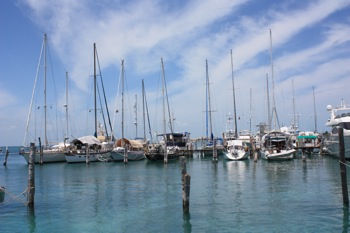
Shelter Bay Marina, Ft. Sherman (Colon), Panama
Whatever you decide, be sure to do the research on the hurricane history for your chosen location (remember hurricanes don’t behave according to insurance company requirements – just ask Grenada!). And also study your insurance policy closely so there are no surprises in the unfortunate event of a named storm.
And enjoy your visit wherever “back home” may take you!
Anyone with additional helpful information in slecting a site to leave your boat? Please leave a comment and share! Cheers! Jan
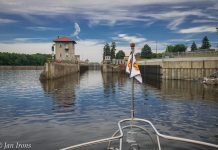

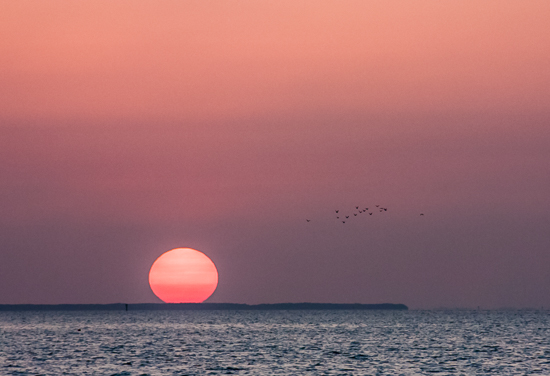








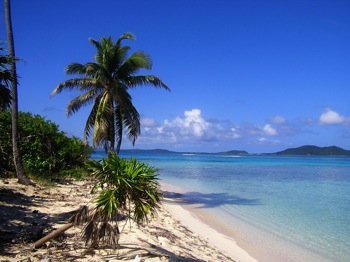
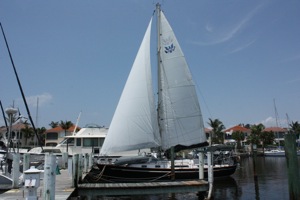
I think it’s also important to recognize that historical data is becoming less accurate as a prediction device. Whatever one’s personal take on Climate change, it’s a reality that the weather is becoming more violent and harder to predict using historical data. We’re kinda on our own out there!